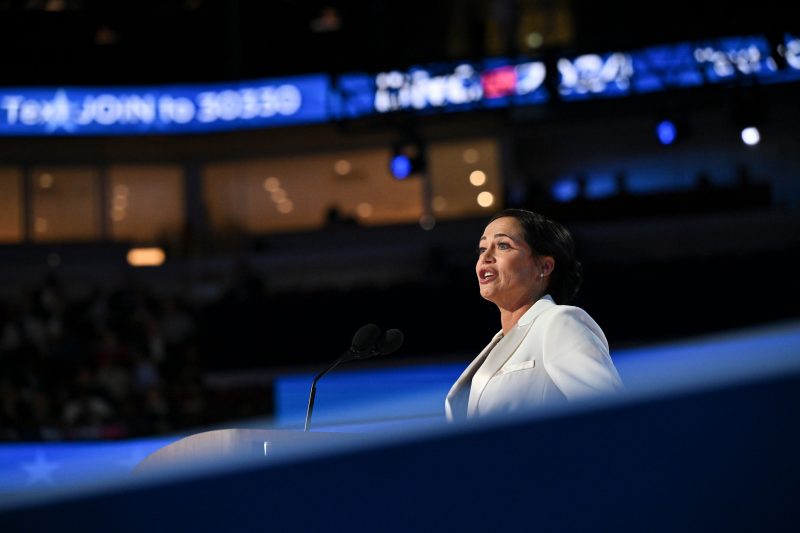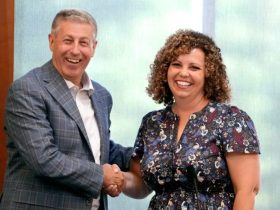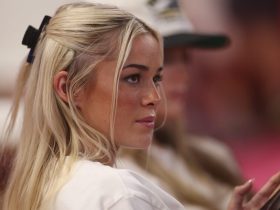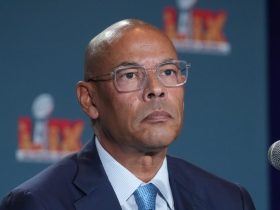An unusual component of this year’s political conventions is that each seemed remarkably upbeat.
When the Republicans convened in Wisconsin in July, Donald Trump was performing well in the polls and seemed poised to defeat President Joe Biden fairly easily. And there was no internal dissent; it was Trump’s third time receiving his party’s nomination, and each time there have been fewer Republicans present who might be expected to dissent.
Then Biden stepped aside one month ago Wednesday. That cleared the way for the Democrats to have their own giddy celebration this week in Chicago. They, too, now feel confident, at the expense of the Republicans and Trump. They, too, displayed a new unity — but one derived from a different process. The Democrats are united around Vice President Kamala Harris and in opposition to Trump’s attempt to return to the White House. The Republicans were united around Trump in part because those critical of Trump no longer associate with the party.
Several of them, in fact, attended the Democratic convention instead.
We can learn a lot about the state of each party and its candidate from whom was given (or who was willing to accept) a speaking slot during the convention. The Democrats are only half done with theirs, as of Wednesday, but some patterns are already obvious and worth calling out.
Elected officials and candidates
We can start with an easy box to check: Both conventions featured (numerous) elected officials and candidates from each party. If a party couldn’t rustle up some candidates to stand at the lectern, it would be in a dire position indeed.
So we give each convention a “yes” on this metric, visualized with the Democratic donkey and Republican elephant above.
Cabinet members
The 2024 contest is unusual in part because it pits two presidential administrations against each other: Trump’s, which stretched from 2017 to 2021, and Biden’s, now represented by Harris.
Each convention featured speakers who served in each administration’s Cabinet, as you might expect. (Former secretary of state Mike Pompeo spoke at the Republican convention, for example, and Commerce Secretary Gina Raimondo spoke at the Democratic convention.) But this was probably trickier for the GOP than it would have been in past years: About half of those who at one point served in Trump’s (tumultuous) Cabinet don’t support his 2024 bid.
Former presidents and presidential candidates
That antipathy from Republican officials is more noticeable when considering who from each party’s past tickets appeared at each convention. The Democratic convention heard (or will hear) from two of its three living past presidents, Bill Clinton and Barack Obama. (The third, Jimmy Carter, is in hospice in Georgia but supports Harris.) President Joe Biden spoke, too, as did the 2016 presidential nominee (Hillary Clinton).
There was no similar passing of the torch on the Republican side. George W. Bush didn’t speak, nor did former vice president Dick Cheney, at the convention. Neither even attended. The party’s 2012 ticket — Sen. Mitt Romney of Utah and former House speaker Paul Ryan of Wisconsin — also weren’t onstage or in the audience. Even Trump’s own former vice president, Mike Pence, didn’t attend the convention, for very obvious reasons.
Celebrities
Both conventions did feature celebrities, though, of course, that term is a broadly encompassing one. The Republican convention had rapper and model Amber Rose, crooner Lee Greenwood, noisemaker Kid Rock and wrestler Hulk Hogan.
The Democratic convention has featured performances from rapper Lil Jon and singer Jason Isbell, along with a number of other celebrities in the audience or serving as state representatives: Don Cheadle, Sean Astin, Eva Longoria. Singer James Taylor’s planned performance on Monday was bumped as the program ran long.
Members of opposing party
Both conventions have also featured members of the other party who changed their minds. The mayor of Dallas, for example, described his switch to the Republican Party as he endorsed Trump. The Democratic convention has featured speeches and testimonials from a number of former Republicans.
Union leaders
In a break from past patterns, both conventions also featured comments from the heads of labor unions. Historically, this would be the sole domain of the Democratic Party. In July, though, the Republican convention featured a speech from the head of the Teamsters union. He didn’t endorse Trump, but his presence was meant by the convention organizers to signal to union members that Trump support was acceptable.
The Democratic convention featured the leaders of a number of unions — and a phalanx of members of the Teamsters union who endorsed Harris.
Staffers from the rival administration
One striking element of the Democratic convention is that it has and will feature people who served in Trump’s administration. Olivia Troye, an outspoken critic of Trump, is scheduled to speak on Wednesday night. There were no members of Biden’s administration who similarly crossed the front line to endorse Trump.
Trump administration press secretaries
We can take this a step further. Arkansas Gov. Sarah Huckabee Sanders (R) spoke at the Republican convention, recalling, among other things, her time serving as Trump’s press secretary.
But another former Trump press secretary spoke at the Democratic convention: Stephanie Grisham, who blasted Trump’s rhetoric and personality.
“He has no empathy, no morals and no fidelity to the truth,” Grisham told the audience. “He used to tell me: ‘It doesn’t matter what you say, Stephanie. Say it enough, and people will believe you.’”
Again, this was Trump’s former spokesperson.
The candidate’s spouse
On Tuesday night, Harris’s husband, Doug Emhoff, spoke at the Democratic convention, telling the story of how he and Harris met and how their relationship and family have evolved.
Melania Trump, by contrast, did not speak in support of her husband at the Republican convention.








